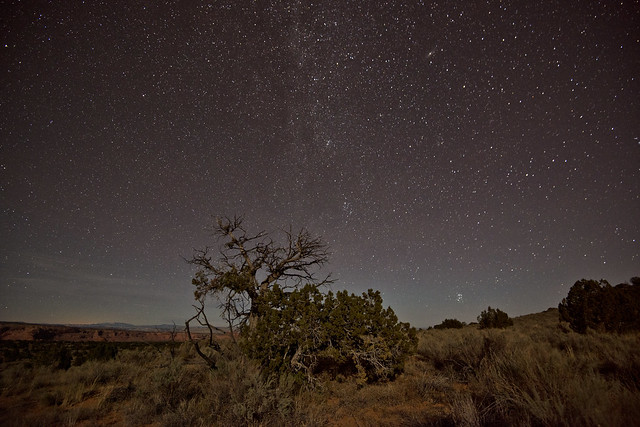“What would you do with a million dollars?”
It’s an interesting question to think about, and can be a good conversation starter in awkward settings. Most of us will never be given a million dollars, but our answers can reveal something deeper about us. First maybe we think we’d just get out of debt. Then maybe a new house, new car, new TV. Then maybe just one trip. It reveals how easy it is to go down the road of, “If I only had a little bit more.”
 |
| Photo Credit: Flickr User cambodia4kidsorg, Creative Commons |
It can be like this with our actual resources as well--we think how nice it would be to reach a certain level of comfort, and once we’re there, we find ourselves thinking how nice it would be to reach the next level, and so on. Whether we actually have the money is only part of the problem--the real issue is our desire to always have more than what we currently have.
1 Timothy 6:17-18 points out the flaw in this kind of thinking, and provides an unexpected suggestion for how to combat it (emphasis added):
Command those who are rich in this present world not to be arrogant nor to put their hope in wealth, which is so uncertain, but to put their hope in God, who richly provides us with everything for our enjoyment. Command them to do good, to be rich in good deeds, and to be generous and willing to share.
Our thoughts shouldn’t be tied up in what we have or what we’d like to have someday. Any kind of wealth, whether it’s financial, relational, or anything else, is ultimately fleeting--our true hope can only be found in God. When we realize where any good gifts we do have come from, we should be thankful for the opportunity we have to experience them for a while. That thankfulness should then cause us to move. Because we aren’t commanded to be rich in things, but in good deeds.
“What would you do with a million good deeds?” isn’t a conversation starting question I’ve ever heard, but unlike a million dollars, it’s something more of us might actually be able to achieve. Our acts of service can be an expression of our thankfulness to God for what he’s done and what he’s blessed us with.
If we let it, our thankfulness can move us to tangible, life-saving action. I love the way The Message translation phrases II Corinthians 9:12-14:
Carrying out this social relief work involves far more than helping meet the bare needs of poor Christians. It also produces abundant and bountiful thanksgivings to God. This relief offering is a prod to live at your very best, showing your gratitude to God by being openly obedient to the plain meaning of the Message of Christ. You show your gratitude through your generous offerings to your needy brothers and sisters, and really toward everyone.
One major cause that’s on the minds of many these days is the Syrian refugee crisis, where millions of people are fleeing their homes in fear of war and violence. There are no easy or quick solutions to a problem of this magnitude. However, as we look at the good things we have in our own lives and take the words in 1 Timothy to heart, “to be generous and willing to share,” we may realize we have ways to share that can help people who are fleeing their homes in crisis. Bethany Christian Services has been helping to resettle refugees from all over the world since 1998. There are a variety of ways to get involved with their refugee resettlement programs, some of which can be found here and here.
[Brianna DeWitt believes in Jesus, surrounding yourself with good people, and that desserts are best when they involve chocolate and peanut butter. She writes about faith, growing up, and whatever else pops into her head on her own blog, and tweets (largely about food) at @bwitt722.]


